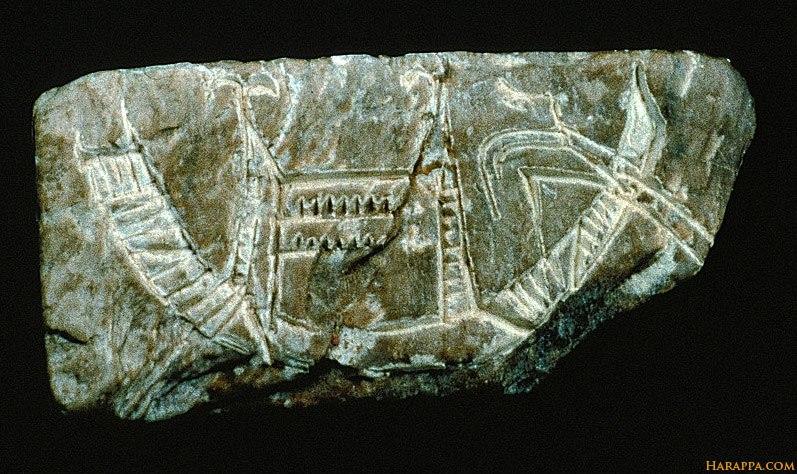
Dennys Frenez
Not yet, mainly because boats were made mainly of perishable materials and that coastlines and riverbeds are subject to heavy siltation and modifications. This situation is not typical of the Indus region. The very few information we have about Bronze Age boats comes from textual sources and from their representation on seals. An interesting exception is represented by the about 300 bitumen slabs found at Ras Al-Jinz in Oman, which have been interpreted as the external coating of a sea-going vessel type that connected Southeastern Arabia with the Sumerian city-states and possibly also the Indus Valley. However, even if likely considering the archaeological data and the objects found together with these bitumen pieces, they provide secondary information and the overall features of the experimental replicas reconstructed in Italy and Oman under the direction of the late Prof. Maurizio Tosi were rather conjectural and also based on artistic representation and digital structural models.
Randall Law
Crossing the sea has always been treacherous and there were doubtlessly many vessels lost over the centuries that Indus peoples shipped goods to Mesopotamia. At this time, however, they are all still waiting to be discovered. Some probably lay in shallower waters immediately off the coasts of India and Pakistan or in the Persian Gulf. Others likely sank in the deeper parts of the Arabian Sea. After four thousand years all are probably buried (at least partially) in sediments that fell to the sea-floor after being carried into the ocean via the region’s rivers and dust storms. Also, the ocean-bed will be littered with thousands of other ship wrecks from later periods. For these reasons locating an Indus vessel will be difficult. It will require a large-scale survey utilizing the latest sonar equipment.
Jonathan Mark Kenoyer
So far no one has discovered any boats or ships of the Indus. If any are preserved they would be buried in the sands along the rivers or beaches. If they are under the sea bed it will be difficult as the coast of Karachi and Kutch have thick layers of sediment in some areas and have been deeply scoured by sea currents in others. The regions where we might find boats are in areas that are difficult to access due to international borders and current national security issues.
Massimo Vidale
It would be wonderful to discover one of these sunken vessels. However, everything depends on the depths and geological nature of the sea bottoms, as well as on the currents, and the coasts of Oman, Makran and Persian Gulf do not seem very favourable for conservation. Moreover, the oldest wrecks so far found in the Mediterranean date back to the mid IInd milennium BC; no IIIrd millennium boat, up to now, has been discovered.
Paolo Biagi
There would have been many due to the extensive trade with Sumer over many centuries. I have no information about any. Ports yes, traces of bitumen on plank imprints also, but real boats, no (as far as I know).
Above: An Indus boat seal from Mohenjo-daro.
